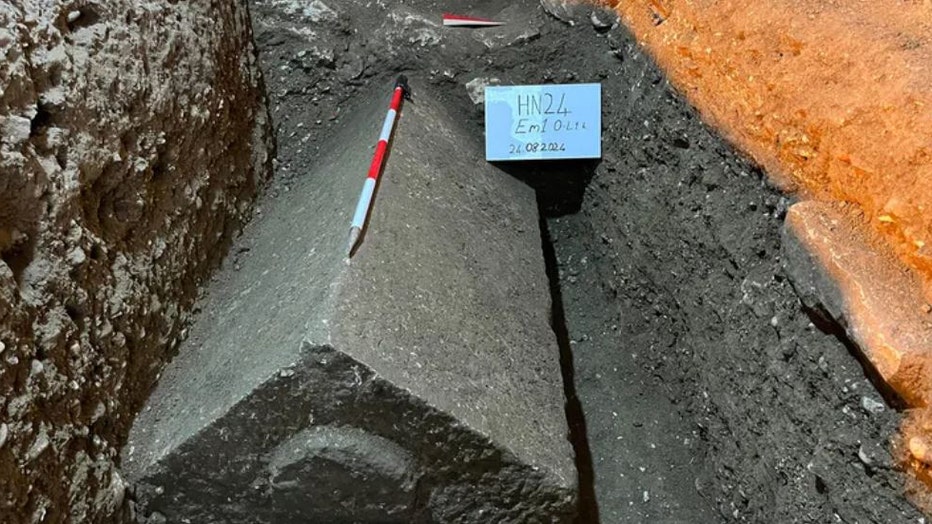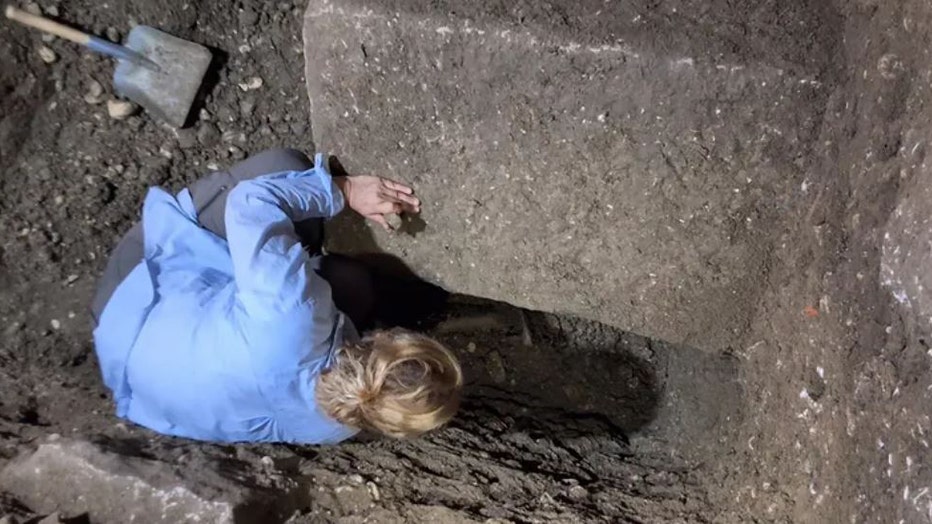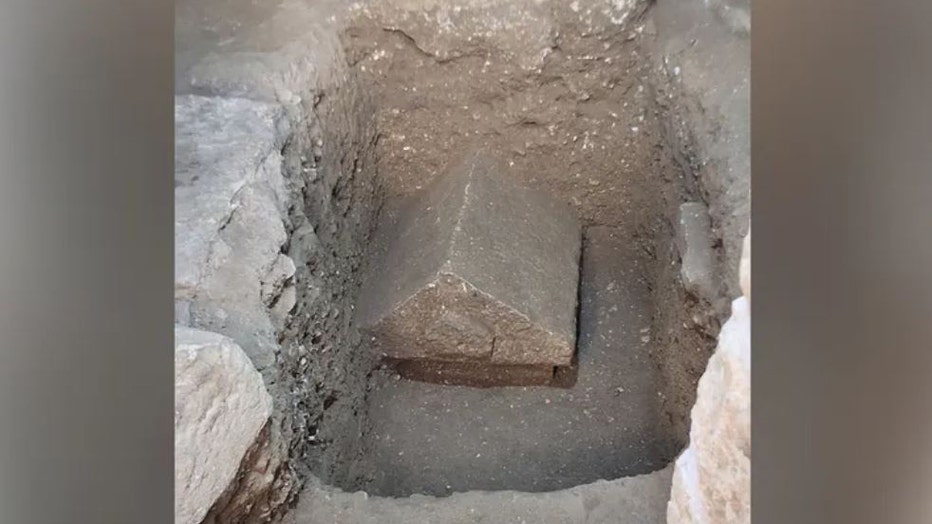'Santa Claus' sarcophagus believed to be discovered during excavation project
The Ministry of Culture and Tourism of the Republic of Turkey believes its team may have discovered the sarcophagus belonging to Saint Nicholas. (iStock; Ministry of Culture and Tourism of the Republic of Turkey)
While Santa Claus is often pictured flying across the night sky on Christmas Eve, a team of archaeologists may have unearthed a sarcophagus containing the remains of the saint whose spirit of generosity is still celebrated in the modern world more than 1,600 years later.
"We believe that we have encountered a sarcophagus to be in situ (original position) for the first time," said associate professor Ebru Fatma Findik, who is heading the excavation team through Hatay Mustafa Kemal University's Department of Art History.
The discovery was made at St. Nicholas Church in the Demre district of Antalya, Turkey, as part of an excavation initiated by Turkey’s Ministry of Culture and Tourism.
HISTORIC ROME LANDMARK'S TEMPORARY CLOSURE CAUSES UPROAR: 'SADDEST THING I’VE SEEN IN ITALY'

During an excavation in Turkey, a sarcophagus was discovered that is believed to be the burial site of Saint Nicholas. (Ministry of Culture and Tourism of the Republic of Turkey)
The sarcophagus was found in the church’s two-story annex, which is believed to be the original burial site of Saint Nicholas, a bishop who lived in the ancient city of Myra during the fourth century.
"While drilling inside the structure, we encountered a surprise sarcophagus," Findik said.
"We are working inside the 20-meter-long, two-story structure that borders the church courtyard from the south. This work, among the undecorated sarcophagus group, is made of local stone and has a slightly high barrel roof."
WHITE HOUSE SELECTS NORTH CAROLINA FAMILY'S CHRISTMAS TREE FARM TO PROVIDE 2024 TREE

The sarcophagus is strikingly similar to the ones used in the fourth century. (Ministry of Culture and Tourism of the Republic of Turkey)
The lid has a handle, Findik said, and the underground part of the approximately 2-meter-long sarcophagus is estimated to be 1.5-2 meters high.
"According to initial evaluations, its similarity to the types of sarcophagi in the region is striking," Findik added.
She explained to A News, a Turkish news agency, that the exact location of Saint Nicholas’ burial remains uncertain.

The sarcophagus was discovered in the two-story building next to the church and is believed to be the burial place of Saint Nicholas. (Ministry of Culture and Tourism of the Republic of Turkey)
"Some historical sources mention that St. Nicholas was buried near the sacred area of the city of Myra," Fındık told A News.
"The discovery of a sarcophagus near the church, which is believed to be the resting place of St. Nicholas, could indicate that this site may indeed be the sacred area in question. We can say that we have reached archaeological evidence that confirms historical sources about St. Nicholas' burial place being in the city's sacred area."
Before the team reached the sarcophagus, they found other artifacts of interest.
"In addition, many terracotta oil lamp fragments and animal bones were unearthed before reaching the sarcophagus during the drilling," Findik said.
Saint Nicholas, known for his acts of generosity, was born in the third century Greek village of Patara, which is now on the southern coast of Turkey.
It is said his wealthy parents died when he was young and that he used his inheritance to assist the needy and suffering, especially children.
He served as the bishop of Myra and died in 343 CE.
Around 200 years after his death, his remains were moved to the Church of St. Nicholas, which was built in his honor.
Findik said her team looks forward to gathering more information as the excavation continues.
"The fact that a sarcophagus has been unearthed very close to the church that is thought to contain the tomb of St. Nicholas excites us greatly," Findik said.
"As part of the project, we will be happy to complete the excavation and restoration of the area where the sarcophagus is located and contribute to our country’s tourism."
Get the latest updates on this story at FOXNews.com

